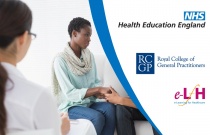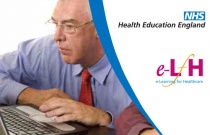Case Management and Substance Abuse Treatment (Revised)
Substance Abuse and Mental Health Services Administration
2.00 Hours
This CEU course is designed to establish a common starting point for case management work with substance abusers by providing interventions to help substance abusers access needed social services, as well as discussing the competencies necessary to implement case management functions and the relationship between those functions....
Developing a Trauma-Informed Juvenile Justice Program with Behavioral Health Conditions
Joseph Cocozza, Ph.D., et al.
4.00 Hours
The majority of youth in contact with the juvenile justice system in this country have a diagnosable behavioral health condition. This CE course discusses trauma and its effects on youth, especially those with behavioral health conditions; the types of trauma-related disorders, the behavioral manifestations of trauma that youth....
Administrators - Integrating Vocational Services in Treatment
Industry Specialist
1.00 Hours
This course addresses the following concerns with regards to substance abuse treatment: the need for vocational services; vocational programming and resources; clinical issues related to integrating vocational services; integrating onsite vocational services; effective referrals and collaborations; funding and policy issues; and....
Administrators - Issues in Outpatient Treatment
Industry Specialist
2.00 Hours
This course addresses the following aspects with regard to administrative issues in outpatient substance abuse treatment: strategic planning, starting a program, working with partners, and public relations; hiring and retaining staff, continuing education and training, and formulating guidelines and policies for staffing; prepar....
Principles of Vaccination and Immunization Strategies
Centers for Disease Control and Prevention
1.00 Hours
Immunology is a complicated subject, however, an understanding of the basic function of the immune system is useful in order to understand both how vaccines work and the basis of recommendations for their use. This CEU course discusses immunology and vaccine-preventable diseases; classification of vaccines; the need for strateg....
Pregnancy Prevention Services For High Risk Youth
Office of Planning, Research, and Evaluation (OPRE); Rachel Shapiro, MPP, Robert Wood, Jean Knab, an
3.00 Hours
Youth in alternative school settings may be at particularlyhigh risk for teen pregnancy, sexually transmitted infections (STIs), andassociated sexual risk behaviors. This CEU course examines the strategiesfor delivering adolescent pregnancy prevention services to a high-risk youthpopulation.
Understanding Stroke
Georgina Casey
The incidence of stroke is increasing world-wide but so are survival rates, at least in developed nations, leading to an increasing burden of disability. Strokes can be ischaemic (loss of blood flow to part of the brain) or haemorrhagic (acute intracranial haemorrhage). Current best practice for stroke involves timely access to....
Continuous Subcutaneous Insulin Infusion in Long Term Care (CSII)
Judy Gilman
2.50 Hours
Since the introduction of insulin pumps several decades ago, Continuous Subcutaneous Insulin Infusion (CSII) therapy has become the preferred method of treatment for everyone with Type 1 Diabetes. For patients using CSII, it replaces multiple daily injections (MDI) of insulin. CSII is also used for some people with Type 2 Diabet....
Qualification or Certification?
Laurie Ellefson, BSN, RN, CWOCN, CFCN
1.00 Hours
Employers are fighting for employees and looking for ways to promote their organization. One way to promote quality for an organization is to recognize their nurses’ skills. Nurses are competing for their dream job and need to promote their skill sets to be considered. Both situations result in nurses ¬highlighting specific spec....
Diabetes Care Before, During and After Pregnancy
Jo M. Kendrick, APN-BC, CDE
7.50 Hours
This module guides evidence-based comprehensive care and education for women with pregestational and gestational diabetes before, during and after pregnancy. Filled with several quick-reference tables, the module’s content underscores appropriate nursing assessment and management strategies to enhance the likelihood of healt....
Promoting Nutritional Health and Diabetes Prevention in Migration Health
Katherine Brieger, RD and Elizabeth Magenheimer, APRN, CDE
0.25 Hours
Diabetes continues to be one of the most common and challenging health condition confronting migrants and other underserved populations. It is clear that a healthy lifestyle is critical to mitigating the impact of diabetes on individuals and the population, however effective and appropriate interventions can be difficult to desi....
Universal Precautions and Cross Infection
Matthew Thomas
Standard precautions should be used for all procedures involving body fluid. They are based on the principle that all body fluids are contaminated. This session explains risk assessment and the precautions needed in all situations.
The Worried Child
Eleanor Leigh
This session describes childhood anxiety and worry and discusses how to react to them.
The Role of Patient and Carer Support Groups in Burns
Evgenia Theodorakopoulou and Monica Fawzy
This session will describe the benefits of patient and carer support groups and explore the challenges that are commonly associated with setting-up and maintaining such groups.
Safe Use of Injectable Medicines (Part 1)
Gillian Cavell
0.50 Hours
Intravenous therapy, known also as IV therapy, refers to the application of liquid medication directly into the veins of a patient. This session explores the health and safety aspects of this procedure, the different technical approaches and equipment involved, along with the steps entailed and the associated risks.
Practical Approaches to Transition
Janet McDonagh, Anita Morgan and Marcelle Sousa
This session considers the practical aspects of timing and planning of transition and transfer for young people with long term conditions and/or disabilities.
Body Shape And Body Image In Adolescence
Rachel Pryke
0.50 Hours
This session explores the normal variations and trends in body shape during adolescence and the factors that commonly influence it, including genetic, ethnic and lifestyle factors. It explains how growth is monitored and explores the common barriers that health professionals may encounter when assessing body shape. This session....
Psychological Therapies for Common Mental Health Problems
Liz England
This session considers some of the psychological therapies that are available for adults and why they should be proposed to patients with common mental health problems. It recommends which therapies are appropriate for which conditions and suggests what you can achieve during a 10 minute consultation.
Safeguarding Children - Surveillance and Health Promotion
Mary Kiddy
0.50 Hours
This session explores the transition from early years to school entry at Reception. It will focus on the universal health assessment and health promotion components that are available to all primary school children as part of the Healthy School Child programme (HSC) 5-12 years.
Safeguarding Children - Injury Prevention, Safety and Medication in School
Jane Levers
0.50 Hours
This session will focus on injury prevention and safety in children of school age. It will explore road safety, sun exposure, second-hand smoke exposure and Internet and social media safety. It will also consider the safe management of medication in school for children with health needs.
Recognising the Last Months and Days of Life and Verifying Death - Palliative Care
Lynne Kovan
This session offers a framework for recognising patients who are at risk of deterioration and who may die soon (last months of life) and also recognising when death is imminent (last days). The priorities for care of the dying person are discussed and the communication with patients and families needed at these times is explored....
Conducting an Audit and Feedback
The National Institute for Health and Care Excellence (NICE)
0.50 Hours
This session is the second of a two part module about how best to carry out a clinical audit. This second session looks specifically at gathering data, analysis and making and sustaining improvement in the audit process.
Overview and Principles of Screening
Joanne Harcombe
0.50 Hours
This session provides an overview of the principles and practice of screening, clarifying relevant terms and detailing the concept of informed choice.
Care of the Woman Who Has Had Unprotected Sex and Patient Scenarios
Maggie Bartlett
0.50 Hours
This session uses three patient scenarios to explore the issues around the provision of emergency contraception (EC) in primary care.
An Introduction to Using Early Support Materials in Context
Silvana Mengoni
0.50 Hours
This session focuses on key working being implemented in practice as well as how Early Support materials can be used and adapted by families and professionals.



















